Article
Publication Types:
Notice: Funktionen is_search anropades felaktigt. Villkorstyrda query-taggar fungerar inte innan en query har körts. Innan dess är deras värde alltid ”false”. Mer information finns i Felsökning i WordPress. (Detta meddelande lades till i version 3.1.0.) in /var/www/wp-includes/functions.php on line 6078
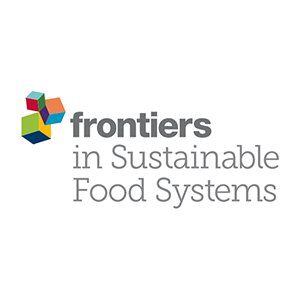
The Status Quo Problem and the Role of Consumers Against Antimicrobial Resistance
Warning: Undefined array key "fac_pub_cit" in /var/www/wp-content/themes/faculty/page-publications.php on line 422
Warning: Trying to access array offset on value of type null in /var/www/wp-content/themes/faculty/page-publications.php on line 422
Antimicrobial resistance occurs when microorganisms survive exposure and proliferate in the presence of therapeutic levels of antimicrobial drugs. Because antimicrobial resistance is increasing, it is vital to encourage consumers to change and adopt smarter antibiotic behaviour. Despite World Health Organization’s efforts to combat antibiotic resistance and their emphasis on the importance of public involvement, the role of consumers has been overlooked. The manifold responsibility for antibiotic resistance extends across different actors, including food retailers and consumers. Given this shared responsibility, a blame game arises and no action occurs. To overcome this status quo situation, we draw attention to the potential role of individual responsibility and social pressure to encourage consumers to adopt smart antibiotic behaviour but also to empower them. Conditions must be put in place to enable consumers’ critical evaluation of the health-related and ethical aspects of their food choices. Such behaviour can be facilitated using digital innovations to support informed choices, in store and online.
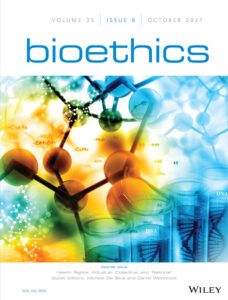
Individual moral responsibility for antibiotic resistance
Warning: Undefined array key "fac_pub_cit" in /var/www/wp-content/themes/faculty/page-publications.php on line 422
Warning: Trying to access array offset on value of type null in /var/www/wp-content/themes/faculty/page-publications.php on line 422
Abstract
Antibiotic resistance (AR) is a major threat to public health and healthcare worldwide. In this article, we analyse and discuss the claim that taking actions to minimize AR is everyone’s responsibility, focusing on individual moral responsibility. This should not be merely interpreted as a function of knowledge of AR and the proper use of antibiotics. Instead, we suggest a circumstantial account of individual responsibility for AR, where individuals do or do not engage in judicious antibiotic behaviour with different degrees of voluntariness. Furthermore, we suggest a notion of responsibility as a virtue, in which individuals have the opportunity to develop a sensitivity towards the AR theme and, consequently, are capable of engaging, actively and voluntarily, in judicious antibiotic behaviour. The development of such sensitivity depends on the creation of adequate circumstances, that is individual capacities and availability of resources.
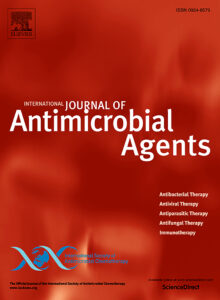
Preferences regarding antibiotic treatment and the role of antibiotic resistance: A discrete choice experiment
Abstract
Objectives
To identify preferences of the Swedish public regarding antibiotic treatment characteristics and the relative weight of antibiotic resistance in their treatment choices.
Methods
A questionnaire including a discrete choice experiment questionnaire was answered by 378 Swedish participants. Preferences of the general public regarding five treatment characteristics (i.e., attributes) were measured: Contribution to antibiotic resistance, Cost, Side effects, Failure rate, and Treatment duration. Latent class analysis models were used to determine attribute-level estimates and the heterogeneity in preferences. Relative importance of the attributes and willingness to pay for antibiotics with a lower contribution to antibiotic resistance were calculated from the estimates.
Results
All attributes influenced participants’ preferences for antibiotic treatment. For the majority of participants ‘Contribution to antibiotic resistance’ was the most important attribute. Younger respondents found contributing to antibiotic resistance relatively more important in their choice of antibiotic treatments. Choices of respondents with lower numeracy, higher health literacy and financial vulnerability were influenced more by the cost of the antibiotic treatment. Older respondents with lower financial vulnerability and health literacy, and higher numeracy found side effects to be most important.
Conclusions
All attributes can be considered as potential drivers of lay people’s use of antibiotics. Findings also suggest that the behaviour of lay people may be influenced by concerns over the rise of antibiotic resistance. Therefore, stressing individual responsibility for AR in clinical and societal communication has a potential to have an impact on personal decision making.
Keywords
-
Antibiotic resistance
-
Discrete Choice Experiment
-
Communication
-
Behaviour
-
Sweden
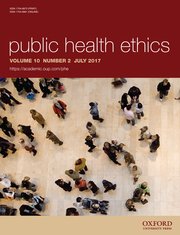
An effort worth making: A qualitative study of how Swedes respond to antibiotic resistance
Abstract
Due to the alarming rise of antibiotic resistance, medically unwarranted use of antibiotics has assumed new moral significance. In this paper, a thematic content analysis of focus group discussions was conducted to explore lay people’s views on the moral challenges posed by antibiotic resistance. The most important finding is that lay people are morally sensitive to the problems entailed by antibiotic resistance. Participants saw the decreasing availability of effective antibiotics as a problem of justice. This involves individual as well as collective moral responsibility. Yet, holding agents responsible for their use of antibiotics involves varying degrees of demandingness. In our discussion, these findings are related to the contemporary ethical debate on antibiotic resistance and two proposals for the preservation of antibiotic effectiveness are compared to and evaluated against participants’ views.
Keywords
Antibiotic resistance
Justice
Responsibility
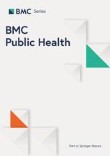
Public awareness and individual responsibility needed for judicious use of antibiotics: a qualitative study of public beliefs and perceptions
Abstract
Background
High consumption of antibiotics has been identified as an important driver for the increasing antibiotic resistance, considered to be one of the greatest threats to public health globally. Simply informing the public about this consequence is insufficient to induce behavioral change. This study explored beliefs and perceptions among Swedes, with the aim of identifying factors promoting and hindering a judicious approach to antibiotics use. The study focused primarily on the medical use of antibiotics, also considering other aspects connected with antibiotic resistance, such as travelling and food consumption.
Methods
Data were collected through focus group discussions at the end of 2016. Twenty-three Swedes were recruited using an area-based approach and purposive sampling, aiming for as heterogeneous groups as possible regarding gender (13 women, 10 men), age (range 20–81, mean 38), and education level. Interview transcripts were analyzed using qualitative content analysis. The Health Belief Model was used as a theoretical framework.
Results
Antibiotic resistance was identified by participants as a health threat with the potential for terrible consequences. The severity of the problem was perceived more strongly than the actual likelihood of being affected by it. Metaphors such as climate change were abundantly employed to describe antibiotic resistance as a slowly emerging problem. There was a tension between individual (egoistic) and collective (altruistic) reasons for engaging in judicious behavior. The individual effort needed and antibiotics overprescribing were considered major barriers to such behavior. In their discussions, participants stressed the need for empowerment, achieved through good health communication from authorities and family physicians.
Conclusions
Knowledge about antibiotic consumption and resistance, as well as values such as altruism and trust in the health care system, has significant influence on both perceptions of individual responsibility and on behavior. This suggests that these factors should be emphasized in health education and health promotion. To instead frame antibiotic resistance as a slowly emerging disaster, risks diminish the public perception of being susceptible to it.
Keywords
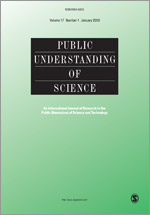
Uncritical and unbalanced coverage of synthetic biology in the Nordic press
Abstract
Synthetic biology will probably have a high impact on a variety of fields, such as healthcare, environment, biofuels, agriculture, and so on. A driving theme in European research policy is the importance of maintaining public legitimacy and support. Media can influence public attitudes and are therefore an important object of study. Through qualitative content analysis, this study investigates the press coverage of synthetic biology in the major Nordic countries between 2009 and 2014. The press coverage was found to be event-driven and there were striking similarities between countries when it comes to framing, language use, and treated themes. Reporters showed a marked dependence on their sources, mainly scientists and stakeholders, who thus drives the media agenda. The media portrayal was very positive, with an optimistic look at future benefits and very little discussion of possible risks.
Keywords
- Media representation
- Public participation
- Science attitudes and perceptions
- Science communication
- Synthetic biology

Challenges and opportunities for ELSI early career researchers
Abstract
Background
Over the past 25 years, there has been growing recognition of the importance of studying the Ethical, Legal and Social Implications (ELSI) of genetic and genomic research. A large investment into ELSI research from the National Institutes of Health (NIH) Human Genomic Project budget in 1990 stimulated the growth of this emerging field; ELSI research has continued to develop and is starting to emerge as a field in its own right. The evolving subject matter of ELSI research continues to raise new research questions as well as prompt re-evaluation of earlier work and a growing number of scholars working in this area now identify themselves as ELSI scholars rather than with a particular discipline.
Main text
Due to the international and interdisciplinary nature of ELSI research, scholars can often find themselves isolated from disciplinary or regionally situated support structures. We conducted a workshop with Early Career Researchers (ECRs) in Oxford, UK, and this paper discusses some of the particular challenges that were highlighted. While ELSI ECRs may face many of the universal challenges faced by ECRs, we argue that a number of challenges are either unique or exacerbated in the case of ELSI ECRs and discuss some of the reasons as to why this may be the case. We identify some of the most pressing issues for ELSI ECRs as: interdisciplinary angst and expertise, isolation from traditional support structures, limited resources and funding opportunities, and uncertainty regarding how research contributions will be measured. We discuss the potential opportunity to use web 2.0 technologies to transform academic support structures and address some of the challenges faced by ELSI ECRs, by helping to facilitate mentoring and support, access to resources and new accreditation metrics.
Conclusion
As our field develops it is crucial for the ELSI community to continue looking forward to identify how emerging digital solutions can be used to facilitate the international and interdisciplinary research we perform, and to offer support for those embarking on, progressing through, and transitioning into an ELSI research career.
Keywords

An update of public perceptions of synthetic biology: still undecided?
Abstract
The discourse on the fundamental issues raised by synthetic biology, such as biosafety and biosecurity, intellectual property, environmental consequences and ethical and societal implications, is still open and controversial. This, coupled with the potential and risks the field holds, makes it one of the hottest topics in technology assessment today. How a new (bio)technology is perceived by the public influences the manner in which its products and applications will be received. Therefore, it is important to learn how people perceive synthetic biology. This work gathers, integrates and discusses the results of three studies of public perceptions of synthetic biology: (1) an analysis of existing research on how media portray synthetic biology across 13 European countries and in the USA, (2) the Meeting of Young Minds, a public debate between prospective politicians and synthetic biologists in the Netherlands and (3) the experiences of citizen panels and focus groups in Austria, the UK and the USA. The results show that the media are generally positive in their reports on synthetic biology, rather unbalanced in their view of potential benefits (emphasized) and risks (downplayed), and also heavily influenced by the sources of the stories, namely scientists and stakeholders. Among the prospective Dutch politicians, there were positive expectations as well as very negative ones. Some of these positions are also shared by participants in public dialogue experiments, such as not only the demand for information, transparency and regulation but also a sense of resignation and ineluctability of scientific and technological progress.
Keywords
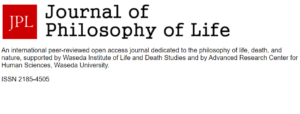
The Value of the Pre-Person: Potentiality, Person-Maker Criteria, and Social Dimension
Abstract
There is a sense in distinguishing persons from other beings. Persons are forms of life towards
whom an agent should feel morally responsible to the highest degree. The aim of this paper is to try
and respond to the question: what line of conduct should we adopt with regard to those beings that
are not persons but that we have well-founded reasons for thinking may be so in the future? The
pre-persons are not, neither should they be considered as they were, persons. If we decide to
guarantee their existence or well-being this decision must be based on considerations that are
independent of their ontological constitution, of their actual biological status, and of the concept of
potentiality. This decision can be taken only accounting for social aspects involved in the
consideration of what a person is.
Keywords
- Person
- Potentiality
- Pre-Person
- Person-Maker Criteria

John Harris. Persona, potenzialità e pre-persona
Abstract (in Italian)
Secondo la nozione sviluppata da John Harris è da considerare persona l’individuo che dimostri la capacità di concepire se stesso in differenti tempi e luoghi e che sia capace di desiderare di fare esperienza di una vita a cui assegna un valore. Tale concezione viene analizzata ricostruendone la genesi, chiarendo quali criteri sottendono le scelte effettuate. L’elaborazione teorica di Harris viene posta a confronto con altre due formulazioni contemporanee, sviluppate rispettivamente da Peter Singer e Vittorio Possenti. Nell’ultima parte sono stati approfonditi criticamente due concetti che emergono dalla descrizione di Harris della persona e che sono ad essa collegati, ossia i concetti di potenzialità e pre-persona.
